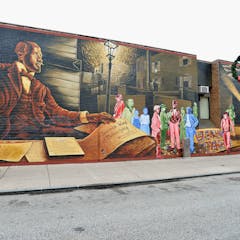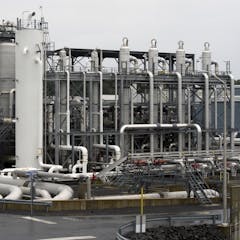
Articles on Q&A
Displaying 1 - 20 of 102 articles

ICE detention facilities suffer from outdated systems, a lack of translation services – and a penchant for releasing ailing detainees to reduce the death count.

Over a century ago, white Philadelphia elites believed the city was going to the dogs – and they blamed poor Black inner-city residents instead of the racism that kept this group disenfranchised.

The US, a minor liquefied natural gas supplier a decade ago, now is the world’s top source. That’s good for energy security, but bad for Earth’s climate. An energy scholar explains the trade-offs.

A historian and legal scholar of a key part of the US Constitution explains what happens now that the Colorado Supreme Court has ruled Trump cannot be on the state’s presidential ballots.

Immunity deals may play a key role in the prosecution of former President Donald Trump.

Plea deals are common in American criminal courts. But in the federal government’s tax case against Hunter Biden, the judge refused to sign off on a deal.

Transportation agencies plan for events like major bridge or highway collapses, but these events can disrupt traffic for months and affect residential neighborhoods as well as motorists.

Dramatic improvements in computing, sensors and submersible engineering are making it possible for researchers to ramp up data collection from the oceans while also keeping people out of harm’s way.

Depleted uranium munitions are bad news for enemy tanks, but are not nuclear weapons, and studies have shown that they pose low risks of radiation or chemical exposure.

Do environmental reviews improve projects or delay them and drive up costs? Two legal scholars explain how the law works and how it could influence the ongoing transition to renewable energy.

Orcas appear to be imitating the behaviour of one in particular by damaging sailboat rudders.

The new book “Black and Queer on Campus” explores the range of experiences that Black LGBTQ students face at colleges across the US.

The US military’s switch to an all-volunteer force in 1973 led to a series of magazine ads that sought to portray military service as a way for women and people of color to move up in society.

A sociologist interviewed dozens of middle-class Black singles about their friendships, freedom and dating lives.

Despite what’s happening on the most prestigious campuses, fewer than a third of presidents at American colleges and universities are women.

The Fed has been trying to tame employment and wages to keep inflation in check. It ain’t working.

The Fed lifted its benchmark interest rate just 0.25 percentage point following a series of much more aggressive rate hikes in 2022.

An effective nasal vaccine could stop the virus that causes COVID-19 right at its point of entry. But devising one that works has been a challenge for researchers.

The cost of borrowing for a home has fallen in recent months, despite repeated increases of the benchmark interest rate. An economist explains the seeming paradox.

Hunters are warned to take precautions handling wild birds, and the virus can spill over to non-avian species, so no one should approach wild animals that appear ill.





